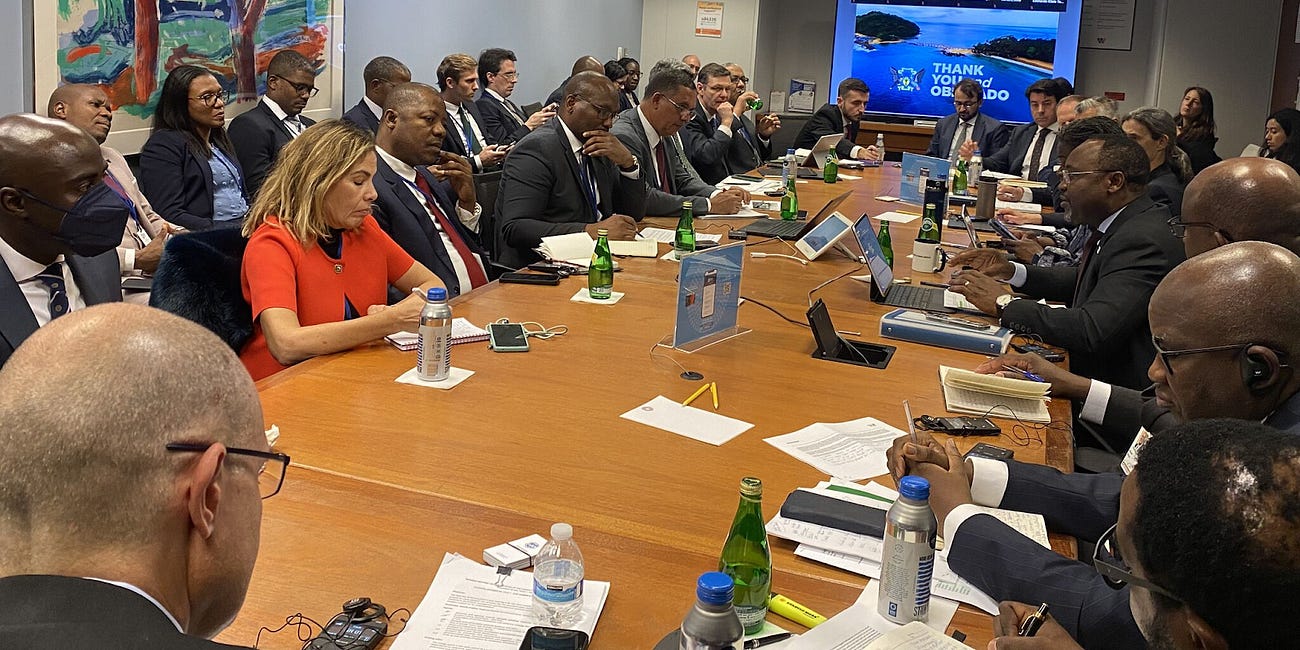[More!] Ridiculous decarbonization
The World Bank is still pushing for emissions reductions in the poorest & lowest emitters
One of my most popular recent posts criticized the World Bank for celebrating planned emissions reductions by tiny São Tomé & Príncipe. I won’t rehash my argument here, but I concluded that very poor low-emitters need growth plans, not decarbonization plans.
Ridiculous decarbonization
The World Bank-IMF biannual circus is mostly theater. It’s billed as a time for shareholders to discuss the future of these two (vital, IMO) organizations, while country delegations make their sales pitches. Because everyone knows it’s mostly for show, it’s hard to get too worked up over any new announcement or some random side event. But, occasionally,…
First STP, now Guinea-Bissau
Then today, I saw this post from the World Bank touting that “Guinea-Bissau aims to reduce its greenhouse gas emissions by 30% by 2030.”
So we’re seeing it again. Reducing GHG emissions by 30% in the next five years is beyond ridiculous for a country with:
Extreme poverty. Average income is $951, while 60% of the population live on less that $3.65 per day.
Extreme energy poverty. Annual electricity generation is just 38 kWh per person while 99% of the population lack clean cooking fuels.
Ahem, ZERO emissions. The latest estimate of per capita CO2 is 0.1 tonnes.
For comparison, the United States — which is on the cusp of pulling out of the Paris agreement again and likely rescinding recent climate legislation — is $82,769, 2%, 12,497 kWh, 0%, and 14.3 tonnes.
This is just not serious
A (mostly healthy) debate is underway over how the World Bank and other development agencies can best tackle climate change while not taking attention or resources away from the goals of economic growth and poverty reduction. Despite the usual protestations, a (mostly European-led) push to shift priorities from development to climate is inevitably going to divert money toward richer countries. More funding to kill coal in richer South Africa means less funding for its poorer neighbors. And a new mandate will also skew the project portfolios in the poorest countries. Spending on decarbonization means less for health, education, and infrastructure.
[In anticipation of the pushback I’ll receive: yes, yes, some projects can have co-benefits and we should always look for double-wins. But if you’re claiming that carbon mitigation is merely a happy byproduct of otherwise the exact same poverty-reducing investments, then we shouldn’t need to sell those projects on their emissions reductions.]
Sadly, the power dynamics at the big institutions encourage and enable such nonsense and double-talk. The low-income borrowing countries should be standing up for themselves here, but of course they don’t want to annoy the donors and risk their funding.
If the World Bank and its shareholders are going to successfully add climate to its mandate without undercutting the fight against poverty, the discussion about tradeoffs must be clear-eyed and serious. Any organization celebrating emissions reductions in Guinea-Bissau is neither.







There is really no point in arguing. Taking account of the external costs of CO2 emissions what is the NPV of the investment in GB? Derision of egregious errors, no matter how mucyh fun, does not really do any good without at least nodding at the non-erroneous decision.
The Billionaires on this planet emit more carbon in any one day than the protest among us. We should be demanding Billionaires reduce their carbon footprint!